Gas Fireplace Blower Not Working
A gas fireplace blower is an essential component that helps distribute warm air throughout a room, making the fireplace more efficient and effective in heating a space. When the blower is not working, it can significantly reduce the effectiveness of the fireplace, causing it to lose its primary advantage: the ability to circulate warm air. There are several reasons why a gas fireplace blower might stop working, and identifying the cause is crucial for restoring its functionality. Common issues include electrical problems, dirt and debris buildup, a malfunctioning thermostat, or a worn-out motor. Understanding these potential causes can help in diagnosing and fixing the problem without needing immediate professional assistance.
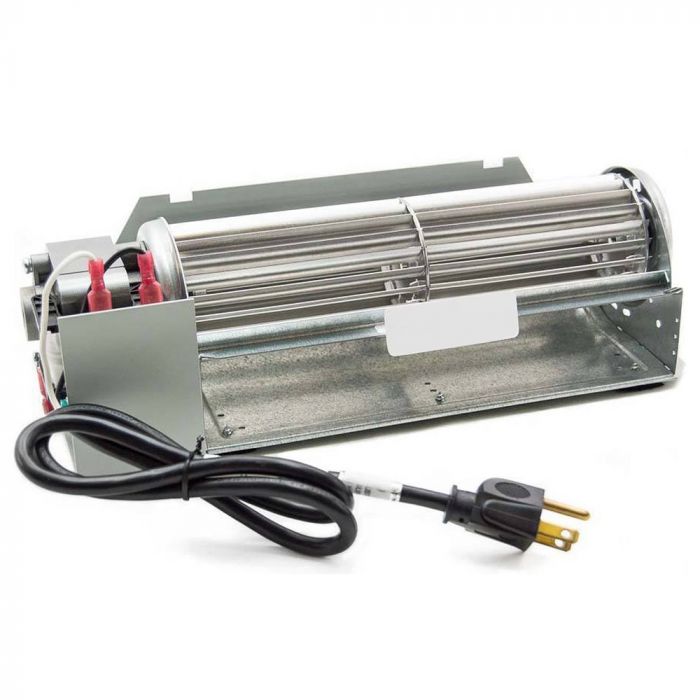
One of the most common reasons for a blower to stop working is an electrical issue. This could range from a tripped circuit breaker to a loose connection in the wiring. Since blowers are typically powered by electricity, ensuring that the blower is receiving power is the first step in troubleshooting. Check the circuit breaker to see if it has tripped and reset it if necessary. Additionally, inspect the blower’s wiring for any visible signs of damage, such as frayed wires or loose connections. If the wiring is intact and the blower still isn’t functioning, the problem might lie within the control switch or thermostat, which governs the blower’s operation. In some cases, the switch or thermostat may need to be replaced to restore functionality.
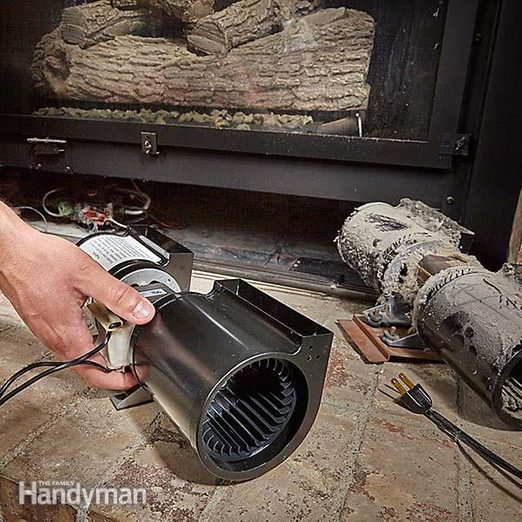
Another potential cause for a non-working gas fireplace blower is dirt and debris buildup within the blower unit. Over time, dust and debris can accumulate in the blower’s components, such as the fan blades and motor, causing it to work less efficiently or stop functioning altogether. Regular maintenance, including cleaning the blower and its components, can prevent this issue. To clean the blower, first, ensure the fireplace is turned off and completely cool. Remove the blower from the fireplace and use a vacuum or compressed air to remove any dirt and debris. Pay particular attention to the fan blades, as even a small amount of buildup can hinder their movement. After cleaning, reassemble the blower and test it to see if the problem has been resolved.
:max_bytes(150000):strip_icc()/spr-primary-electric-fireplaces-hwortock-002-871af259a2d84e0fb5a44e75a320ae3d.jpg)
If the blower still isn’t working after addressing electrical issues and cleaning, the problem may lie in the motor itself. Blower motors, like all mechanical parts, can wear out over time, especially if the fireplace is used frequently. Signs that the motor might be failing include unusual noises such as grinding or squealing, a blower that turns on intermittently, or one that runs at reduced speed. If the motor is the issue, it might need to be replaced. Replacing a blower motor can be a more complex task, requiring some knowledge of electrical and mechanical systems, so it may be advisable to consult a professional if you’re not comfortable doing it yourself. However, if you are comfortable with DIY repairs, replacement motors are generally available from the manufacturer or online, and installation instructions are often provided.

Heat And Glo Gas Fireplace Remote Not Working
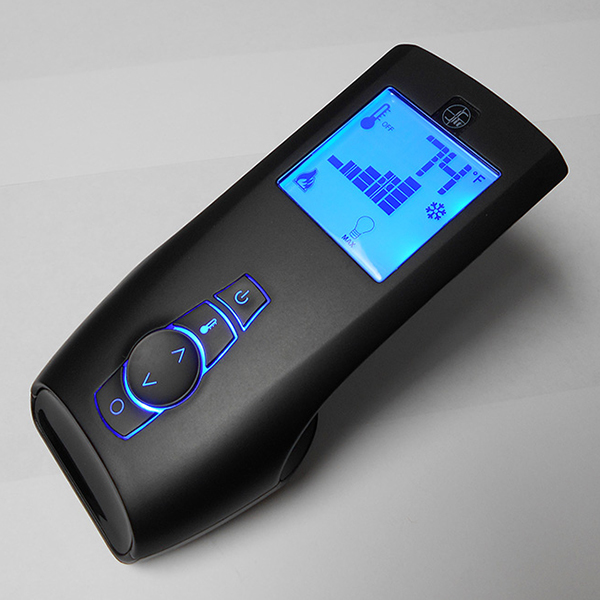
Heat And Glo Gas Fireplace Remote Not Working
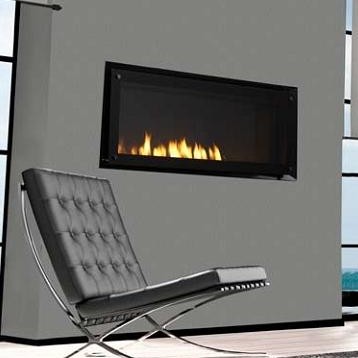
while optional Humility gas fireplace blower not working surely

gas fireplace blower not working

gas fireplace blower
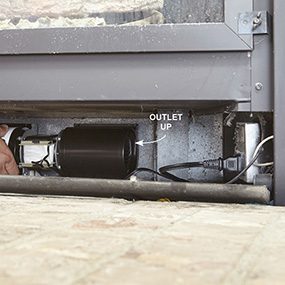
FIREPLACE BLOWER: BLOWER FOR A WOOD BURNING FIREPLACE
Do Gas Fireplaces Need a Blower?

Free Standing Gas Fireplace With Blower

Can You Add A Blower To A Gas Fireplace – Architectural Design Ideas

Gas Fireplace Blower Reviews – I Am Chris

How to Install a Fireplace Blower [4 Easy Steps] – FireplaceHubs

Related Posts:
- Gas Fireplace Upgrade
- Gas Fireplace Knob Stuck
- Gas Fireplace Heatilator
- Gas Fireplace Wiring
- Gas Fireplace Connection Kit
- Fireplace Gas Leak
- Gas Fireplace Not Heating Room
- Pilot Light Assembly for Gas Fireplace
- Gas Fireplace Leak
- Corner Gas Fireplace Direct Vent
Gas fireplaces are a popular option for homeowners looking to add warmth and ambiance to their homes. However, like any appliance, gas fireplaces can experience issues over time. One common problem that homeowners may encounter is a gas fireplace blower not working. The blower is responsible for distributing heat generated by the fireplace throughout the room, so when it stops working, it can significantly impact the efficiency of the fireplace. In this guide, we will explore some common reasons why a gas fireplace blower may not be working and how to troubleshoot and fix the issue.
Possible Causes of a Gas Fireplace Blower Not Working
There are several potential reasons why a gas fireplace blower may not be functioning properly. One common issue is a faulty connection or wiring problem. Over time, the electrical connections that power the blower can become loose or damaged, leading to a loss of power to the blower motor. Another possible cause could be a malfunctioning blower motor itself. If the motor is damaged or worn out, it will need to be replaced for the blower to work again. Additionally, a clogged or dirty air filter can restrict airflow and prevent the blower from operating at full capacity.
Troubleshooting and Fixing the Issue
If you notice that your gas fireplace blower is not working, there are some steps you can take to troubleshoot and potentially fix the issue. First, check to make sure that the power switch for the blower is turned on. If it is on but the blower still isn’t working, try resetting the circuit breaker that powers the fireplace. If neither of these actions resolves the issue, you may need to inspect the wiring and connections to see if there are any visible signs of damage or corrosion.
If you suspect that the blower motor is faulty, you can test it using a multimeter to determine if it is receiving power. If not, you may need to replace the motor. Similarly, if the air filter appears dirty or clogged, try cleaning or replacing it to see if that improves airflow and allows the blower to function properly.
Common Mistakes to Avoid
One common mistake that homeowners make when troubleshooting a gas fireplace blower issue is neglecting regular maintenance. It’s important to clean and inspect your fireplace regularly to prevent buildup of debris or dust that can affect the performance of the blower. Additionally, attempting to repair electrical components without proper knowledge or experience can be dangerous and should be left to professionals.
Another mistake to avoid is ignoring warning signs such as strange noises or reduced airflow coming from the fireplace. These could be early indicators of a problem with the blower or other components of the fireplace that need attention.
How often should I clean my gas fireplace blower?
It’s recommended to clean your gas fireplace blower at least once a year to ensure optimal performance and efficiency.
Can I replace a faulty blower motor myself?
If you have experience working with electrical components and feel confident in your ability, you may be able to replace a faulty blower motor yourself. However, it’s recommended to consult a professional technician for safety reasons.
Why is my gas fireplace blower making strange noises?
Strange noises coming from your gas fireplace blower could indicate an issue with the motor or other components that require inspection and potentially repair.
Will cleaning or replacing the air filter improve my gas fireplace’s performance?
Yes, cleaning or replacing a clogged air filter can improve the airflow and efficiency of your gas fireplace, allowing the blower to function more effectively.
What should I do if none of these troubleshooting steps fix my gas fireplace blower issue?
If you have tried all the troubleshooting steps and still cannot resolve the problem with your gas fireplace blower not working, it’s best to contact a professional technician for further inspection and repair.
A gas fireplace blower not working can be a frustrating issue for homeowners, but with proper troubleshooting and maintenance, it can often be resolved. By checking for common causes such as wiring problems, faulty blower motors, or clogged air filters, you can identify the source of the problem and take steps to fix it.
Remember to perform regular maintenance on your gas fireplace to prevent issues from occurring in the first place, and don’t hesitate to contact a professional technician if you’re unable to resolve the problem on your own. Taking care of your gas fireplace and addressing any issues promptly will help keep it running smoothly and efficiently, providing you with warmth and comfort during the colder months. By following the tips outlined in this guide, you can troubleshoot and fix a gas fireplace blower not working, ensuring that your home stays cozy and inviting all winter long.